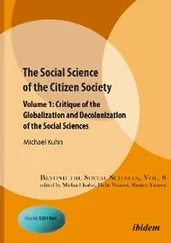Andrew Dickson White - The Warfare of Science
Здесь есть возможность читать онлайн «Andrew Dickson White - The Warfare of Science» — ознакомительный отрывок электронной книги совершенно бесплатно, а после прочтения отрывка купить полную версию. В некоторых случаях можно слушать аудио, скачать через торрент в формате fb2 и присутствует краткое содержание. Жанр: foreign_prose, foreign_religion, Философия, foreign_psychology, foreign_antique, на английском языке. Описание произведения, (предисловие) а так же отзывы посетителей доступны на портале библиотеки ЛибКат.
- Название:The Warfare of Science
- Автор:
- Жанр:
- Год:неизвестен
- ISBN:нет данных
- Рейтинг книги:5 / 5. Голосов: 1
-
Избранное:Добавить в избранное
- Отзывы:
-
Ваша оценка:
- 100
- 1
- 2
- 3
- 4
- 5
The Warfare of Science: краткое содержание, описание и аннотация
Предлагаем к чтению аннотацию, описание, краткое содержание или предисловие (зависит от того, что написал сам автор книги «The Warfare of Science»). Если вы не нашли необходимую информацию о книге — напишите в комментариях, мы постараемся отыскать её.
The Warfare of Science — читать онлайн ознакомительный отрывок
Ниже представлен текст книги, разбитый по страницам. Система сохранения места последней прочитанной страницы, позволяет с удобством читать онлайн бесплатно книгу «The Warfare of Science», без необходимости каждый раз заново искать на чём Вы остановились. Поставьте закладку, и сможете в любой момент перейти на страницу, на которой закончили чтение.
Интервал:
Закладка:
Lactantius asserted the ideas of those studying astronomy to be "mad and senseless." 3 3 See Lactantius , Inst. , 1., iii., chap. 3. Also, citations in Whewell , Hist. Induct. Sciences , Lond., 1857, vol. i., p. 194. To understand the embarrassment thus caused to scientific men at a later period, see Letter of Agricola to Joachimus Vadianus in 1514. Agricola asks Vadianus to give his views regarding the antipodes, saying that he himself does not know what to do, between the Fathers on one side and learned men of modern times on the other. On the other hand, for the embarrassment caused to the Church by this mistaken zeal of the Fathers, see Kepler's references and Fromund's replies; also De Morgan , Paradoxes , p. 58. Kepler appears to have taken great delight in throwing the views of Lactantius into the teeth of his adversaries.
But the attempt to "flank" the little phalanx of thinkers did not succeed, of course. Even such men as Lactantius and Eusebius cannot pooh-pooh down a new scientific idea. The little band of thinkers went on, and the doctrine of the rotundity of the earth naturally led to the consideration of the tenants of the earth's surface, and another germ idea was warmed into life—the idea of the existence of the antipodes, the idea of the existence of countries and men on the hemisphere opposite to ours. 4 4 Another germ idea , etc. See Plato , Timæus , 62 C., Jowett's translation, N. Y. ed. Also Phædo , pp. 449, et seq. Also Cicero , Academic Quest. , and Tusc. Disput. , ubi supra . For citations and summaries, see Whewell , Hist. Induct. Sciences , vol. i., p. 189, and St. Martin , Hist. de la Géog. , Paris, 1873, p. 96. Also Leopardi , Saggio sopra gli errori popolari degli antichi , Firenze, 1851, chap. xii., p. 184, et seq.
At this the war-spirit waxed hot. Those great and good men determined to fight. To all of them such doctrines seemed dangerous; to most of them they seemed damnable. St. Basil and St. Ambrose 5 5 For opinion of Basil, Ambrose, and others, see Lecky , Hist. of Rationalism in Europe , New York, 1872, vol. i., p. 279, note. Also, Letronne , in Revue des Deux Mondes , March, 1834.
were tolerant enough to allow that a man might be saved who believed the earth to be round, and inhabited on its opposite sides; but the great majority of the Fathers of the Church utterly denied the possibility of salvation to such misbelievers.
Lactantius asks: "… Is there any one so senseless as to believe that there are men whose footsteps are higher than their heads?—that the crops and trees grow downward?—that the rains and snow and hail fall upward toward the earth?… But if you inquire from those who defend these marvelous fictions, why all things do not fall into that lower part of the heaven, they reply that such is the nature of things, that heavy bodies are borne toward the middle, like the spokes of a wheel; while light bodies, such as clouds, smoke, and fire, tend from the centre toward the heavens on all sides. Now, I am at loss what to say of those who, when they have once erred, steadily persevere in their folly, and defend one vain thing by another."
St. Augustine seems inclined to yield a little in regard to the rotundity of the earth, but he fights the idea that men exist on the other side of the earth, saying that "Scripture speaks of no such descendants of Adam."
But this did not avail to check the idea. What may be called the flank movement, as represented by Eusebius, had failed. The direct battle given by Lactantius, Augustine, and others, had failed; in the sixth century, therefore, the opponents of the new ideas built a great fortress and retired into that. It was well built and well braced. It was nothing less than a complete theory of the world, based upon the literal interpretation of texts of Scripture, and its author was Cosmas Indicopleustes. 6 6 For Lactantius, see Instit. , iii., 24, translation in the Ante-Nicene Library; also, citations in Whewell , i., 196, and in St. Martin , Histoire de la Géographie , pp. 216, 217. For St. Augustine's opinion, see the Civ. D. , xvi., 9, where this great Father of the Church shows that the existence of the antipodes "nulla ratione credendum est." Also, citations in Buckle's Posthumous Works , vol. ii., p. 645. For a notice of the views of Cosmas in connection with those of Lactantius, Augustine, St. John Chrysostom, and others, see Schoell , Histoire de la Littérature Grecque , vol. vii., pp. 37, et seq.
According to Cosmas, the earth is a parallelogram, flat, and surrounded by four great seas. At the outer edges of these seas rise immense walls closing in the whole structure. These walls support the vault of the heavens, whose edges are cemented to the walls; walls and vault shut in the earth and all the heavenly bodies. The whole of this theologic, scientific fortress was built most carefully, and, as was then thought, most scripturally.
Starting with the expression, Το ἁγιον κοσμικὁν , applied in the ninth chapter of Hebrews to the tabernacle in the desert, he insists, with other interpreters of his time, that it gives a key to the whole construction of the world. The universe is, therefore, made on the plan of the Jewish Tabernacle—box-like and oblong.
Coming to details, he quotes those grand words of Isaiah, "It is he that sitteth upon the circle of the earth, … that stretcheth out the heavens like a curtain, and spreadeth them out like a tent to dwell in," 7 7 Isaiah xl. 22.
and the passage in Job, which speaks of the "pillars of heaven." 8 8 Job xxvi. 11.
He turns all that splendid and precious poetry into a prosaic statement, and gathers therefrom, as he thinks, treasures for science.
This vast box is then divided into two compartments, one above the other. In the first of these, men live and stars move; and it extends up to the first solid vault or firmament, where live the angels, a main part of whose business it is to push and pull the sun and planets to and fro. Next he takes the text, "Let there be a firmament in the midst of the waters, and let it divide the waters from the waters," 9 9 Genesis i. 6.
and other texts from Genesis. To these he adds the text from the Psalms, "Praise him, ye heaven of heavens, and ye waters that be above the heavens," 10 10 Psalm cxlviii. 4.
casts that outburst of poetry into his crucible with the other texts, and, after subjecting them to sundry peculiar processes, brings out the theory that over this first vault is a vast cistern containing the waters. He then takes the expression in Genesis regarding the "windows of heaven," 11 11 Genesis vii. 11.
and establishes a doctrine regarding the regulation of the rain, which is afterward supplemented by the doctrine that the angels not only push and pull the heavenly bodies, to light the earth, but also open and close the windows of heaven to water it.
To find the character of the surface of the earth, Cosmas studies the table of shew-bread in the Tabernacle. The dimensions of that table prove to him that the earth is flat and twice as long as broad; the four corners of the table symbolize the four seasons. To account for the movement of the sun, Cosmas suggests that at the north of the earth is a great mountain, and that, at night, the sun is carried behind this; but some of the commentators ventured to express a doubt here; they thought that the sun was pushed into a great pit at night, and was pulled out in the morning. Nothing can be more touching in its simplicity than Cosmas's closing of his great argument. He bursts forth in raptures, declaring that Moses, the prophets, evangelists, and apostles, agree to the truth of his doctrine. 12 12 See Montfaucon , Collectio Nova Patrum , Paris, 1706, vol ii., p. 188; also pp. 298, 299. The text is illustrated with engravings showing walls and solid vault (firmament), with the whole apparatus of "fountains of the great deep," "windows of heaven," angels, and the mountain behind which the sun is drawn. For an imperfect reduction of one of them, see article Maps in Knight's Dictionary of Mechanics , New York, 1875. For still another theory, very droll, and thought out on similar principles, see Mungo Park, cited in De Morgan , Paradoxes , 309. For Cosmas's joyful summing up, see Montfaucon , Collectio Nova Patrum , vol. ii., p. 255.
Интервал:
Закладка:
Похожие книги на «The Warfare of Science»
Представляем Вашему вниманию похожие книги на «The Warfare of Science» списком для выбора. Мы отобрали схожую по названию и смыслу литературу в надежде предоставить читателям больше вариантов отыскать новые, интересные, ещё непрочитанные произведения.
Обсуждение, отзывы о книге «The Warfare of Science» и просто собственные мнения читателей. Оставьте ваши комментарии, напишите, что Вы думаете о произведении, его смысле или главных героях. Укажите что конкретно понравилось, а что нет, и почему Вы так считаете.












